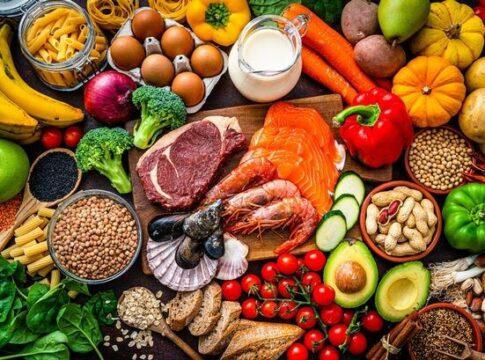As global health challenges mount—from rising chronic diseases to post-viral fatigue—nutritionists and researchers are urging a return to basics: a nutrient-rich, immunity-supporting diet grounded in whole foods. But this isn’t a call for exotic imports or fad supplements. The answer, many experts say, lies in everyday foods—some of which are likely already in your pantry.
In fact, ten humble superfoods are being heralded as natural protectors of our health, energy, and longevity—especially vital as wellness becomes a top priority in the post-pandemic Middle East.
“Diet plays a direct role in how our immune system performs,” said Dr. Nourhan Yehia, a Cairo-based clinical nutritionist. “Incorporating foods that reduce inflammation, regulate blood sugar, and provide sustained energy is no longer optional—it’s essential.”
In the Gulf, where chronic diseases such as diabetes and cardiovascular illness are prevalent, governments have launched public health campaigns encouraging plant-based diets and fresh food consumption. The UAE’s Ministry of Health and Prevention, for instance, recently partnered with schools to integrate healthy eating education across curricula.
Here’s a fresh look at the top contenders fueling vitality across the region and the globe:
1. Berries
Blueberries, strawberries, and raspberries are rich in antioxidants called flavonoids, which combat oxidative stress. Their low glycemic load makes them ideal for Middle Eastern diets concerned with sugar control.
2. Leafy Greens
Spinach and kale are rich in iron, vitamin K, and folate—crucial for energy production and detoxification. In Egypt, molokhia (jute leaves) also fits this nutrient-rich category.
3. Fatty Fish
Salmon, mackerel, and sardines—popular in Levantine and Mediterranean dishes—are packed with omega-3 fatty acids. “Omega-3s help reduce systemic inflammation, a key factor in many chronic illnesses,” noted Dr. Karim Hamdy, a preventive medicine specialist in Beirut.
4. Avocado
Once considered exotic, avocado is now a staple in many upscale Cairo and Dubai cafes. Its healthy fats enhance nutrient absorption, particularly for fat-soluble vitamins A, D, E, and K.
5. Ginger
A common ingredient in Egyptian and Levantine teas, ginger reduces muscle pain, aids digestion, and supports immunity. It’s a go-to during the cold and flu season.
6. Garlic
Used liberally across Middle Eastern cuisine, garlic is both flavorful and functional—offering potent antibacterial and antiviral properties. Its cardiovascular benefits are also well-documented.
7. Turmeric
This golden spice, central to South Asian and increasingly Arab cuisine, contains curcumin—a compound with powerful anti-inflammatory effects. Adding black pepper enhances its absorption.
8. Green Tea
Popular in North Africa and now more widely consumed in the Gulf, green tea supports metabolic health and mental clarity thanks to its antioxidant profile and amino acid L-theanine.
9. Nuts and Seeds
Almonds, walnuts, flaxseeds, and especially local favorites like sesame and sunflower seeds, offer protein, fiber, and essential fatty acids. They’re easy to integrate into breakfast dishes or snack packs.
10. Sweet Potatoes
A complex carbohydrate high in beta-carotene, sweet potatoes offer long-lasting energy and antioxidant benefits. “They’re an excellent alternative to white rice or bread,” said nutrition coach Leila Fadel in Amman.
From Lebanon’s organic food movements to Saudi Arabia’s national dietary reform initiatives, there is growing momentum across the Arab world to reconnect with traditional, wholesome eating.
“Many of these superfoods have deep cultural roots in the Middle East,” said Amira Osman, a wellness columnist for Al Bayan. “We’re not reinventing the wheel—we’re simply remembering what our ancestors already knew.”
While no single food is a magic bullet, building a plate filled with these nutrient-dense staples may help reduce the risk of disease, boost mental clarity, and sustain energy—especially amid modern pressures.
Healthcare professionals advise integrating these foods gradually and consulting a nutritionist for tailored advice—especially for individuals with chronic conditions or dietary restrictions.
“Let food be your first medicine,” Dr. Nourhan Yehia concluded. “Your grocery basket may be the most powerful prescription of all.”


